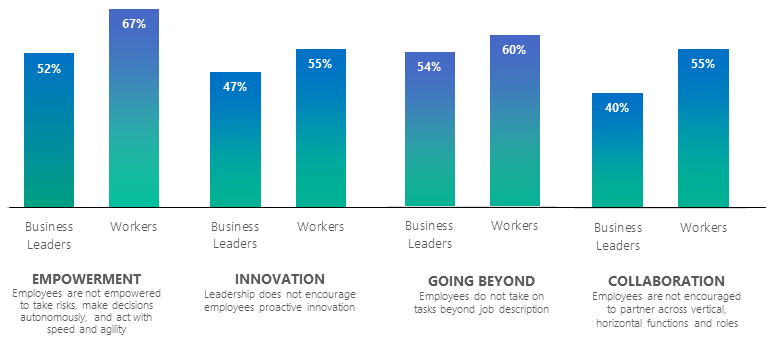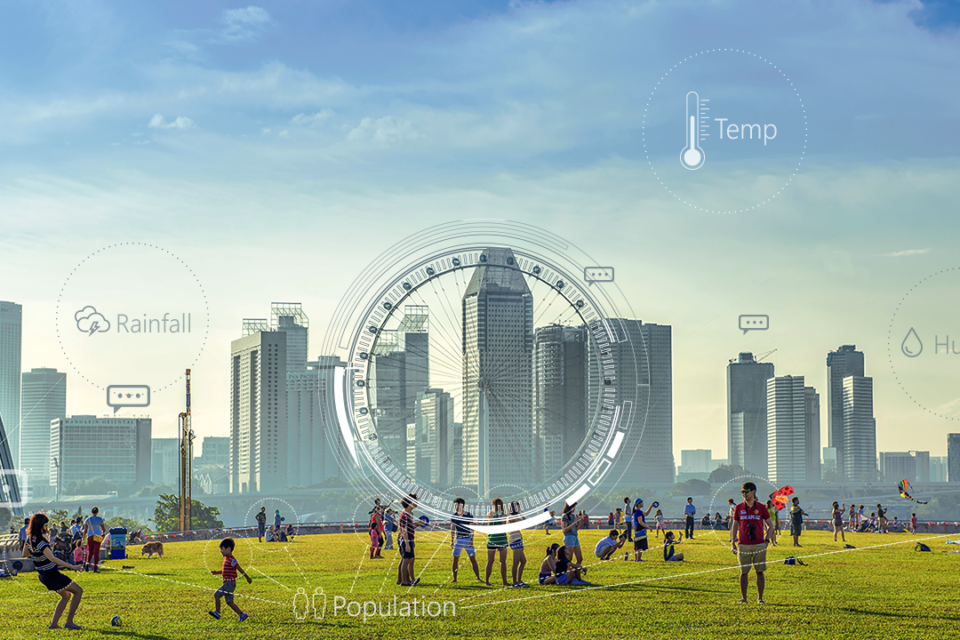By Ralph Haupter, President, Microsoft Asia. This article was originally posted on LinkedIn.
 It was slightly more than a year ago when I began 2018 by saying that it would be the year of Artificial Intelligence (AI). Indeed, 2018 was a remarkable year for AI where we witnessed this game-changing technology dominating the agendas of leading organizations and even nations.
It was slightly more than a year ago when I began 2018 by saying that it would be the year of Artificial Intelligence (AI). Indeed, 2018 was a remarkable year for AI where we witnessed this game-changing technology dominating the agendas of leading organizations and even nations.
In the last year, Microsoft has helped organizations in Asia Pacific, such as OOCL, Apollo Hospitals and Northern Territory Fisheries, to harness AI as the core – and key catalyst – of their digital transformation strategy.
How is AI shaping up in 2019? How will the organizations that have deployed AI reap its benefits? To help answer these questions, we partnered with leading research analyst firm IDC to conduct a study involving 1,605 business leaders and 1,585 workers across 15 markets in Asia Pacific. The focus of this report was to better understand how they are embracing AI, harnessing its capabilities and understanding the key barriers to greater and faster adoption.
2019: Year of Tangible AI Impact
What’s most exciting to me is that the study found that AI offers genuine, tangible potential for driving the next phase of economic growth in the Asia region.
The two most important factors contributing to a market’s competitiveness are innovation and productivity. Our study found that AI is expected to almost double the rate of innovation and employee productivity in Asia Pacific by 2021.
Hence, there was no surprise that business leaders in Asia Pacific recognise the importance of AI to their organizational growth. Almost 80% agreed that AI is instrumental in an organization’s competitiveness in the next three years. In fact, organizations that have deployed some form of AI today expect their competitiveness to increase 100% in the next three years.

One such organization is Piramal Glass, a leading global designer and producer of glass packaging for pharmaceuticals and the fast-moving consumer goods industry, based in India.
What many may not know is that glass packaging production is a complex process with over 150 variables involved. Any slight changes can significantly impact the product and costs. For the management, it was critical to drive operational efficiency to enhance customer experience and to generate new revenue models. Hence, Piramal Glass saw an opportunity to embrace digitalization, as well as introduce data and AI in their manufacturing processes.
The team started a proof of concept to implement Real Time Manufacturing Insights (RTMI) in three production lines in one of their facilities in West India. By installing over 4,000 sensors, the team was able to quickly capture over 200 million data points. It offered a microscopic peek into every machine and every process in the production line, which then provided real-time data for the team. Actionable insights were immediately pushed to relevant personnel when an anomaly was detected.
The benefits were immediate. RTMI has led to 40% reduction in manual data gathering, which has resulted in 25% improvement in employee productivity. The real-time feedback loop has also led to 5% reduction in defects.
More excitingly, Piramal has created and deployed a Digital Twin of their production line, whereby AI and machine learning models are applied to help better predict production efficiency, quality and defects – for every batch produced – saving them significant time and cost in the manufacturing process.
Culture and Skills Are Key for CEOs to Get Right
To be competitive in today’s digital-first world, organizations need to be fast adopters of best-in-class technology, including AI. In addition, they need to start building their own unique digital capabilities. Taken together, we refer to this combination of factors as the ‘tech intensity’ of an organization.
However, in order to fully embrace tech intensity, organizations will also need to invest in their human capital.
The rise of AI means that there is a necessity for workers to reskill and upskill to remain relevant and play a part in the workforce of tomorrow. In addition, business leaders will need to drive cultural transformation within their organizations that values experimentation, agility, proactiveness and a growth mindset.
However, the Study found that a significant number of business leaders and more than half of workers surveyed believe that cultural traits and behaviors that contribute to AI adoption are not being demonstrated today.

The good news is that, according to our study, 84% of businesses are willing to invest in skilling and reskilling of workers to create an AI-ready workforce. However, 64% of them have yet to implement plans to train their workers. Business leaders must have the urgency to invest in workers’ training, as AI cannot progress without skilled individuals.
The jobs of today will not be the jobs of tomorrow, and already we have seen demand for software engineering roles expand rapidly beyond just the tech sector. However, building an AI-ready workforce does not necessarily mean an acute need for technological skills. The top future skills identified by business leaders include a very important soft skill needed to create new AI-led innovations – adaptability and continuous learning.
Here at Microsoft, we constantly look for ways to support employers and workers in ways that can help them better adapt in the new digital economy. Yesterday, we launched AI Business School that will empower business leaders to be successful and get results from AI. Our master class series offers practical knowledge on how to define an AI strategy and use AI with confidence. Also, you will hear directly from industry experts how to foster an “AI Ready” culture.
In addition, our publicly available Microsoft Professional Program has an AI track, offering AI-specific online courses and instructional videos from expert instructors targeted at IT professionals and tech savvy executives. We have also developed a developer-focused AI School, which provides online videos and other assets that help build professional AI skills. These are just some of many programs that we are initiating to help democratize the skills required in an AI future.
Ultimately, staying competitive in today’s market requires adaptability from both employers and workers. Organizations with an agile workforce and an progressive and empathetic management who are willing to deal with change will have a greater chance to succeed. This means that in an AI-enabled future, organizations that have both the skills and mindset to adapt are in a better position to create new breakthroughs.






